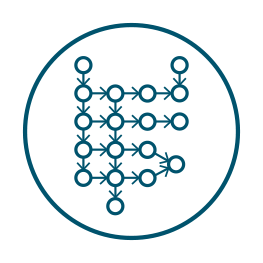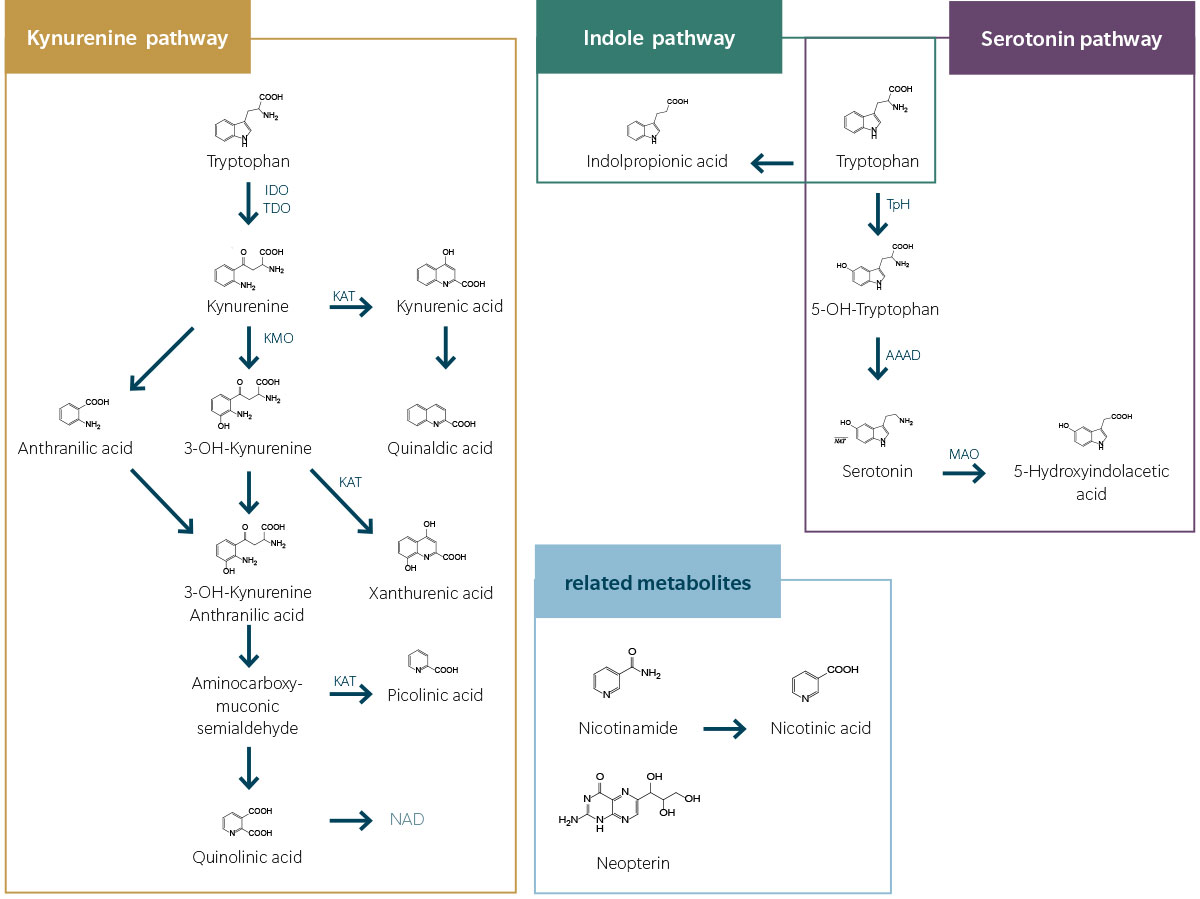Tryptophan metabolism assay


Tryptophan metabolism assay
Tryptophan metabolism plays a critical role that encompasses the modulation of immune responses, the regulation of growth and the impact on mood as well as the behavior. This makes it a crucial candidate for both identifying disease biomarkers and developing therapeutic strategies.
Tryptophan metabolism plays a critical role in immune response modulation, growth regulation as well as the impact on mood and behavior. This makes it a crucial candidate for both identifying disease biomarkers and developing therapeutic strategies.

Comprehensive coverage
- Highest tryptophan pathway metabolites coverage in a single assay
- Relevant metabolite sums and ratios to better understand enzyme activities and regulations

Clinical applications
- The role of inflammation in cancer, neurological diseases and cardiovascular diseases
- The link to gut microbiota metabolism and gut-brain axis as well as gut-immune axis

Reliable and reproducible
- Results can be combined with other biocrates kit or assay results for maximal insights
- Data is absolute and quantitative enabling Biomarkers and therapeutic target studies

Understand the implications
- Support in data interpretation possible
- Tools to translate metabolomics into knowledge
Covered tryptophan metabolites
- Tryptophan
- Kynurenine
- Kynurenic acid
- 3-Hydroxykynurenine
- Quinolinic acid
- Anthranilic acid
- 3-Hydroxyanthranilic acid
- Picolinic acid
- Serotonin
- 3-Indolepropionic acid (IPA)
- 5-Hydroxyindoleacetic acid (5-HIAA)
- Nicotinic acid
- Nicotinamide
- 5-Hydroxytryptophan
- Quinaldic acid
- Xanthurenic acid
- Neopterin
Role of tryptophan metabolism in physiology
Tryptophan metabolism
- Takes place mainly via the kynurenine pathway, serotonin pathway and indole pathway to generate bioactive metabolites.
- Is involved in key physiological processes, such as immunity, neuronal function and gut homeostasis. It is influenced by gut microbiota.
- Deregulation results in a wide range of diseases, from neurological diseases to cancer.

Three pathways, one solution
Dietary tryptophan is metabolized via three distinct pathways:
The kynurenine pathway plays a major role in inflammatory signaling. Metabolite ratios from this pathway enable insights into enzyme activities and immune activation.
The serotonin pathway and its metabolites are crucial in gut-brain axis communication. The metabolite serotonin itself is, among others, involved in learning, mood regulation, and sleep.
Indols are direct signaling molecules used by the microbiome in communication with the host. Indols are involved in inflammatory pathways.
Tryptophan metabolism in pharmacology
Tryptophan metabolism is a promising common therapeutic approach in cancer, neurodegeneration, autoimmunity and many other diseases.
Some of its potential targets
- Administration of tryptophan metabolites
- Pre- and probiotics (e.g. Lactobacillus plantarum to patients with major depressive disorder)
- Small molecule inhibitors of enzymes
Antibodies (e.g. to block enzymatic activity) - Cell-based therapies (in autoimmune diseases)
- Gene therapy (e.g. viral delivery of key enzymes)
Clinical trials on neuropsychiatric disorders focus on the supplementation or deprivation of tryptophan and its metabolites. In oncology and increasingly also for neurodegenerative diseases, drug development efforts focus mainly on small molecules inhibiting enzymatic activity of the kynurenine pathway, such as:
- IDO1 inhibitors are currently in clinical trials on cancer and neurological diseases
- TDO inhibitors were initially developed as antidepressants and are now under investigation for cancer therapy
- KMO inhibitors entered clinical trials on neurodegenerative and neuropsychiatric diseases
The pivotal role of tryptophan metabolism in inflammatory disease makes this assay the go-to sentinel for your clinical study success.
For research use only | not for use in diagnostic procedures.